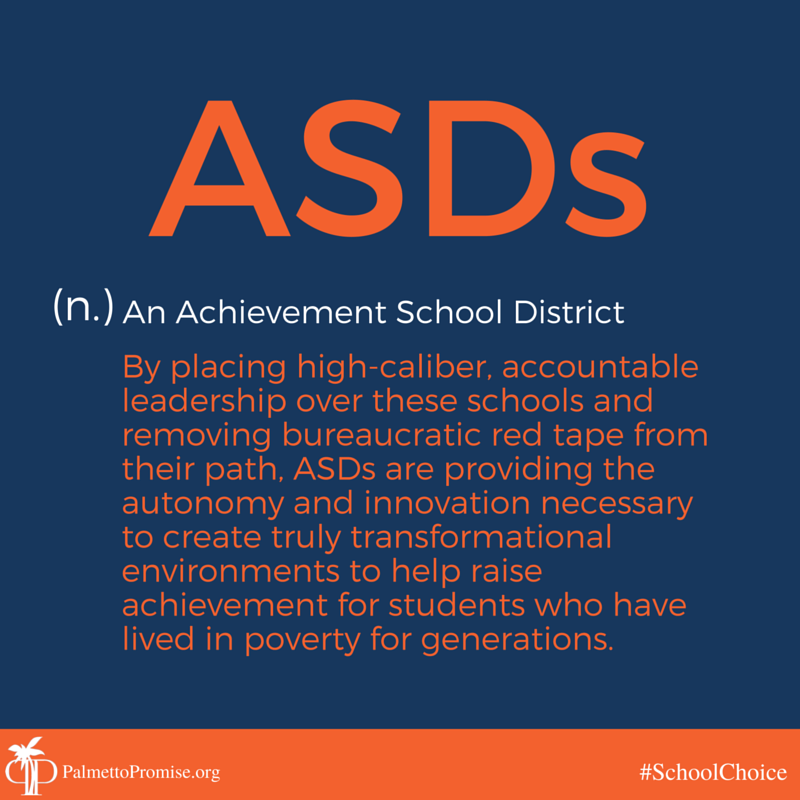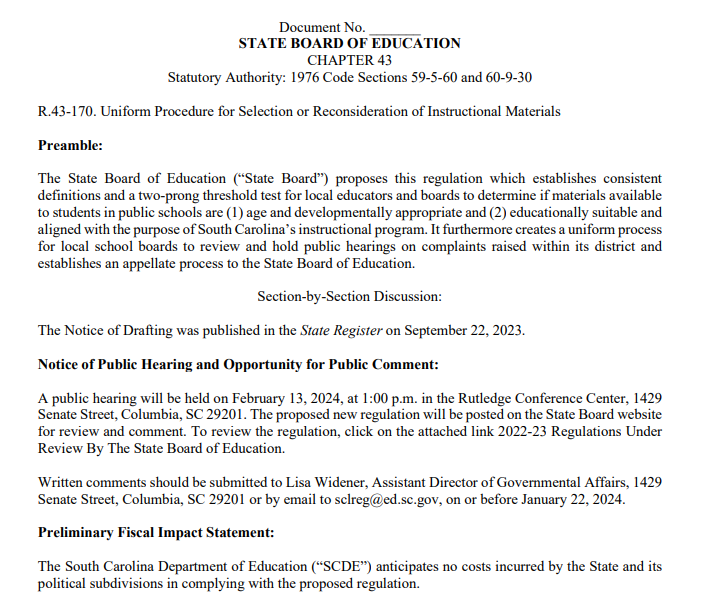All S.C. Students Should Benefit From Abbeville Fix

Adam Crain
When the South Carolina Supreme Court ruled last year that 33 school districts are not providing adequate education to thousands of students, the legislative spotlight rightly turned toward ways of remedying the failures of the public education system in our state. As the pendulum of focus swings back and forth between the issues facing South Carolina – namely education, healthcare, and infrastructure – South Carolinians must be quick to demand that the focus placed on education is not only aimed at strengthening those 33 named school districts in the Abbeville ruling but aimed at the quality of all South Carolina education outlets.
In his recent Greenville News op-ed, “Achievement District Could Change Education,” 10-year veteran teacher, Chase Willingham, argues for an inclusive approach to reforming education in South Carolina that creates opportunity for all students, not a myopic approach that fixes only the 33 districts named by the Supreme Court decision. He writes:
“As the 2016 legislative session is underway, lawmakers are prioritizing and debating the issues that affect all of us in South Carolina.
It’s been over a year since the South Carolina Supreme Court ruled in Abbeville v. South Carolina that at least 33 school districts in the state don’t provide a minimally adequate education. But, it’s also important to recognize that students who attend schools located outside of those 33 plaintiff districts often face obstacles, too.
Any educational fix passed by lawmakers should be comprehensive and not just affect the 33 mainly rural school districts named in the Abbeville case. It’s clear that South Carolina’s educational woes exist outside tidy rural boundaries, and it’s time that we find solutions that are elastic enough to address the common barriers to quality education across the state.
We must hold ourselves accountable to students living in rural and urban areas of South Carolina, as well as everywhere in between.
Above all else, we need to stop the practice of carving up our state into rural and urban areas while discussing solutions to improve education.”
[popuppress id=”3155″]
Willingham goes on to propose the creation of Achievement School Districts, a special designation that allows school administrators to cut through red tape and work hard to fix the broken school district quickly:
“Simply put, the ASD model creates the conditions necessary to achieve transformational change at the school level. The lowest performing schools are given special attention under the authority of the ASD Superintendent who cuts through the red tape found in a traditional district, places these schools into the hands of talented school operators, and holds these operators accountable for results.
The ASD also requires input from the local community — so whether an ASD school is located in an urban or rural area it’s customizable for a school’s unique characteristics and needs.
I’ve worked with Lead Academy of Greenville since the school started serving our community’s students in 2010, and throughout my time there, I’ve played a role in developing the types of innovative approaches that work to create meaningful academic achievement for our students. I’ve seen the process by which outside-the-box thinking becomes normal behavior and bureaucratic red tape doesn’t stand in the way of student learning. Any comprehensive approach to fixing the status quo in South Carolina should keep charters – and the innovation they inspire – at its very heart, and the ASD model shares many similarities to the work I do each day.”
Here at Palmetto Promise, we couldn’t agree with Chris more. We see the ASD approach working in Louisiana and Tennessee…and there’s no question that done right, it could work here. That is why creating an Achievement School District is one of eight important proposals we’ve outlined in our H.O.P.E. (Help Our Pupils Excel) Plan.




